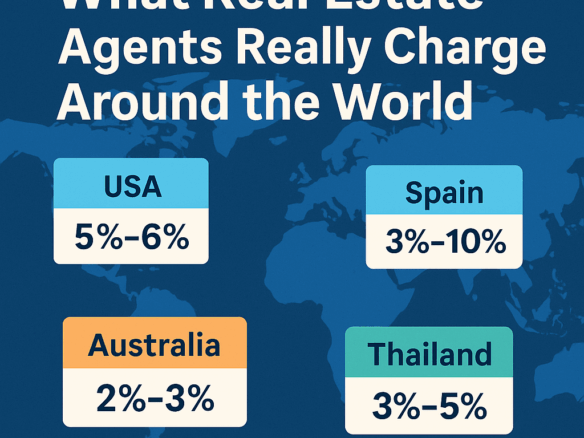Buying property overseas can be a daunting prospect. And when you’re looking to invest in overseas property, one of the first things you’ll need to consider is how you’ll finance it. This is because financing a foreign property can be more complicated than funding a domestic one.
Many financing options are available, but each has its advantages and disadvantages. From the location, price, and currency exchange rates to legal issues, there are many things to consider before you take the plunge and purchase property in another country. But with careful planning, it’s possible to finance a foreign property by familiarizing yourself with the financial markets.
We’ve come up with everything you need to know before you finally purchase your overseas property.
The Overview Of Property Financing
Property financing is obtaining loans, mortgages, or other methods of raising capital to purchase a property. This ensures that the buyer buying the property has enough money to complete the transaction and pay off any debts incurred during their ownership period.
The main reason to obtain property financing is that it allows you to purchase a property without paying for it outright. This can be particularly useful if you have limited cash on hand or if the property is out of your price range.
However, property financing is a complex process that involves several different parties. You must work together with your real estate agent, your lawyer, the seller, and their lawyers.
How To Finance An Overseas Property
There are many different ways you can finance an overseas property. These include the following:
1. Getting A Mortgage From An Overseas Lender
You can get a mortgage from an overseas lender through a mortgage broker or a foreign bank. This will be a good option, as the lender will know the local market and can advise you regarding local laws and regulations. You can also use an overseas mortgage broker to find a lender willing to provide you with a loan.
However, be aware that some lenders will only lend based on their criteria rather than your needs as a borrower. The benefit of using an overseas mortgage broker is that they know all the different banks in your chosen country, which means they can help you find one that suits your needs.
2. Borrowing From Your Local Bank
The most common way to finance a property overseas is by borrowing from your local bank. However, this can be challenging for several reasons. Many banks will not lend money on an overseas investment property because they don’t have international lending programs. They may also charge higher interest rates than what you would pay for a local property.
But this can be a go-to place if your bank offers an international program with reasonable interest rates. Plus, getting your loan approved will be easier if you have a good credit score, a solid income, and a good relationship with the bank.
3. Using Your Own Funds
If you have the funds to buy the property outright, you can avoid getting a mortgage that attracts interest rate charges. While it’s a good idea to use your own money for the purchase, it’s worth noting that you may need cash for other expenses associated with purchasing the property, such as maintenance, taxes, and insurance. If you have enough money to pay for these expenses, you can use your own funds without trouble.
One major downside of using your funds to finance overseas property is that you won’t benefit from tax deductions. This means that there’s no depreciation available to offset your income, so you’ll need to pay tax on the total amount you earn, especially if you plan to rent out your property.
4. Obtaining A Bridge Loan
A bridge loan is a short-term loan that you can use to finance the purchase of a property. It’s usually obtained from your lender and often has an interest rate higher than what they offer on their standard mortgages. A bridge loan’s term usually lasts for six to 12 months. You can pay for a bridge loan through the sale of the property or by arranging other repayment options with your lender.
5. Remortgaging Your Home
Remortgaging your home is the process of switching to a new mortgage. It’s usually done because you want better terms or conditions, such as lower interest rates or extended repayment periods. Remortgaging can be done when you’ve built up equity in your property and are looking for a way to access it. You could also remortgage if your existing loan has ended and needs to be renewed.
However, you must consider the repayments you can afford in to avoid affecting your credit score. When considering remortgage deals, it’s a good idea to speak with an expert who can help you understand what options are available and how they might affect your finances.
Conclusion
Financing an overseas property is a significant decision that should be taken seriously, and the process can be challenging to navigate. If you’re considering buying overseas property, it’s essential to do your research and understand all the aspects involved in financing. Lastly, you should also ensure that the property is worth the investment.




